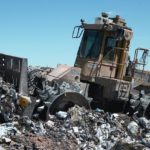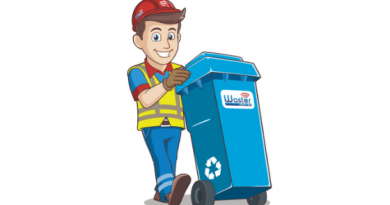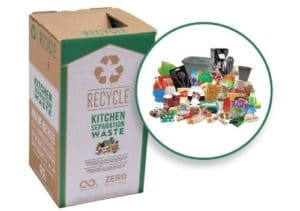Rural Waste Management In Australia 🗑️
Energy Disrupter
Rural Waste Management 🗑️: To the ones reading this now, you probably enjoy the waste management and recycling services of your local council or private provider. After all, you only need to dispose of waste in the bin and put them on the kerbside for collection.
But did you know that not everyone here in Australia enjoys that “privilege” of some sorts? There are those who do not have kerbside collection and recycling services available in their area. These are what we call rural areas in Australia.
In this blog, we will discuss how their waste management and recycling work and how their area can prove disadvantageous at times. Read on to learn more.
>Download Now: Free PDF Business Owners Guide To General Waste Bin Services
A Bit About Waster
Before we continue with the discussion on rural waste management in Australia, let me share with you more information about Waster.
We here at Waster provide you with innovative solutions for you and your business’s waste management and recycling needs. Furthermore, we provide flexible, 30-day contracts instead of the typical lock-in contracts, which proves to be better.
Click on the blue button to learn more about nursery waste disposal.
READ: Waste Management Companies In Germany 🗺️
Waste Management Practices In Rural Areas
As I have already mentioned above, people living in rural Australia do not have kerbside collection and recycling services at their disposal. What do they do, instead?
Farmers, who live in rural areas, came to my mind first. Of course, they also generate significant amounts of waste, namely food waste. What can they do with it? Answer: for dealing with food waste and electricity generation.
Now, back to other rural areas.
Let us use Broken Hill as an example. There, if you really want to recycle, you really need to exert effort. And I mean EXERT, because you have to make a trip (walk, drive, etc. it really depends) every time to a yard that collects waste for recycling. For example, they can deliver their bottles at the local glass yard and bring other types of recyclables to the local tips for sorting.
There, will then need to sort the waste (i.e., separate plastic, paper, cardboard, glass, etc.) and put at the proper bin.
Additionally, unlike in the main cities, rural waste management does not involve waiting weekly for collection. People living in the cities might think of this as something weekly or fortnightly, but not people from rural areas. They need to do it by themselves, so that will prove hard to do.
Disadvantages Of Rural Waste Management
People in rural Australia experience hurdles in waste management and recycling. Many places in Australia, first and foremost, do not have these services.
Recycling, specifically, is not strong in the rural areas – an example of which is Broken Hill. There exist only a few services in rural Australia. Furthermore, front lift general waste bin services are more likely than the rear lift counterpart.
And, as I have mentioned, recycling is less common, too. There may be front lift cardboard services available, but it won’t be common and less regular to find. Additionally, this also applies to commingled recycling.
Let’s face it, some people in the rural areas of Australia do not have the resources to travel far places and recycle their waste there.
Landfilling
According to an article written by ABC, Broken Hill residents are given a green waste bin that is collected. The waste then gets collected and added to a local landfill as a “cover to suppress dust”.
Do you have any idea why recycling bins and collection services do not exist yet in Broken Hill? That is because it is costly, so plans to get those services have been delayed. In fact, if not for recycling incentives, people might recycle even less than expected.
Unfortunately, without waste management and recycling services, the majority of the waste from rural areas go to landfills, instead. Specifically, in the Northern Territory, general manager of NT Recycling Solutions Dean Caton said that “NT is up there with the worst in the country” in terms of recycling rates.
He added that they have no choice because shipping recyclables proved to be too expensive, so landfill is the best – or only – bet they have in practising waste disposal methods in NT or in any other rural areas, too.
To make things worse, there are those who even operate illegal dumpsites which do more damage to the environment rather than helping it.
Improvement Must Be Made
Everybody can agree that rural waste management can improve with the right implementations. Rightfully so, many now think about their lifestyle and what impact it brings to the environment. We can definitely say the same for those living in Australian rural areas.
More and more people have become aware, therefore prompting them to ask questions on how to properly dispose of waste. It is now only a matter of time before contractors servicing those in rural areas improve their waste management and recycling services.
This can only be done through proper implementations of the local council. One thing they could do is to incentivise waste management and recycling providers for a much better service.
[embedded content]
Rural Area Waste Management: Conclusion
If you compare the waste management in rural and urban areas, you may notice that rural areas lag behind. That is because many hurdles exist that prevents them from easily disposing of and recycling waste. As a result, many disadvantages arose which lessened efforts even further.
As such, the best thing to do here is to implement effective waste management and recycling services to make people living in rural area’s lives easier. Additionally, incentivise recycling to encourage more people to do so.
If you can, try reducing and reusing your bought products-turned-waste. This way is a much better way than trying to recycle as this also exhausts natural resources, which does the environment more harm than good.
Waster: Things You Need To Know
If you’re looking for different bin services, check our waste recycling shop and find the best deals in terms of pricing and services.
Also, please call 1300 WASTER (1300 927 837), or email us at [email protected] if you have any further questions.

















